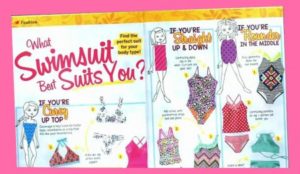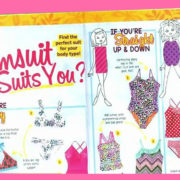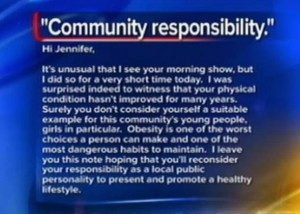Why this Tween Magazine was Under Fire Due to This Swimsuit Article for Girls
 I was recently on the Today Show talking about Discovery Girls and their misstep in publishing an article on swimsuits for specific body types. Some people thought it was a big deal– others did not. What’s your view?
I was recently on the Today Show talking about Discovery Girls and their misstep in publishing an article on swimsuits for specific body types. Some people thought it was a big deal– others did not. What’s your view?
What are the girls experiencing in preteen years that makes this a tough time?
During the preteen years, a girl’s body is changing, her brain is changing and she is moving from the child stage to the teen and young adult stage. It can feel weird and confusing for any girl—so many turn to communities and resources where they feel safe and valued for who they are.
Why is this article a big deal?
This is the time of year when every magazine is focusing on bathing suits and what cuts are best to accentuate their best features and hide features that are less valued in our culture. When preteen magazines jump on the bandwagon, it sends a message to girls that they need to be thinking about how they look—form over function- when it comes to swim suit.
Of course, teen magazines could have a lot of fun with bathing suit styles by flipping the conversation and asking; “What bathing suit style is best for what you LOVE to do” or “What bathing suit patterns reflect your personality?” And going into bold or subtle prints, loud and soft colors and other fun fashion topics like that.
Why was that one sentence in the apology about the magazine attempting to simply “build confidence in girls” a big deal?
Many parents don’t want their girls to get the message that what you wear and how you look affects whether you feel confident. We all make mistakes, absolutely, and I think parents just wanted to hear that a mistake was made, they take full responsibility and it will never happen again.
How do you build a girl’s confidence?
A girl can build confidence by (1) gaining mastery in something she cares about and (2) feeling connected, safe and valued by people she cares about in and outside of her home. When a girl believes in herself, pushes through barriers, succeeds after failing and feels she has key people to rely on in her life, she gains confidence. Confidence is built from the inside out, not the other way around.
Kinds of message this article can inadvertently send:
This kind of an article can send a negative message to a girl who is using the magazine as a safe place to learn how to be a healthy preteen. When we talk about the need to hide areas of our bodies to look good in a swimsuit, we are saying that there are parts of every girl’s body that may need to be covered because it’s not acceptable.
Let’s be blunt. Raising a girl in today’s appearance-oriented world can be a challenge. When articles seem to reflect rather than deflect the media messages plaguing our girls that state “your value comes from how you look or you need to change the way you look to fit what others think is valuable,” parents get very upset. This is especially true when they trust the resource and feel that the focus took an unexpected turn.
What did you think of the article?



 “Obesity is one of the worst choices a person can make and one of the most dangerous habits to maintain. I leave you this note hoping that you’ll reconsider your responsibility as a local public personality to present and promote a healthy lifestyle.”
“Obesity is one of the worst choices a person can make and one of the most dangerous habits to maintain. I leave you this note hoping that you’ll reconsider your responsibility as a local public personality to present and promote a healthy lifestyle.” window on traditional learning. School [School newly corrected: Learning] takes place out of traditional school doors and on the child’s own terms. Today, I sat down with Matt Lauer on The Today Show, to discuss it.
window on traditional learning. School [School newly corrected: Learning] takes place out of traditional school doors and on the child’s own terms. Today, I sat down with Matt Lauer on The Today Show, to discuss it.